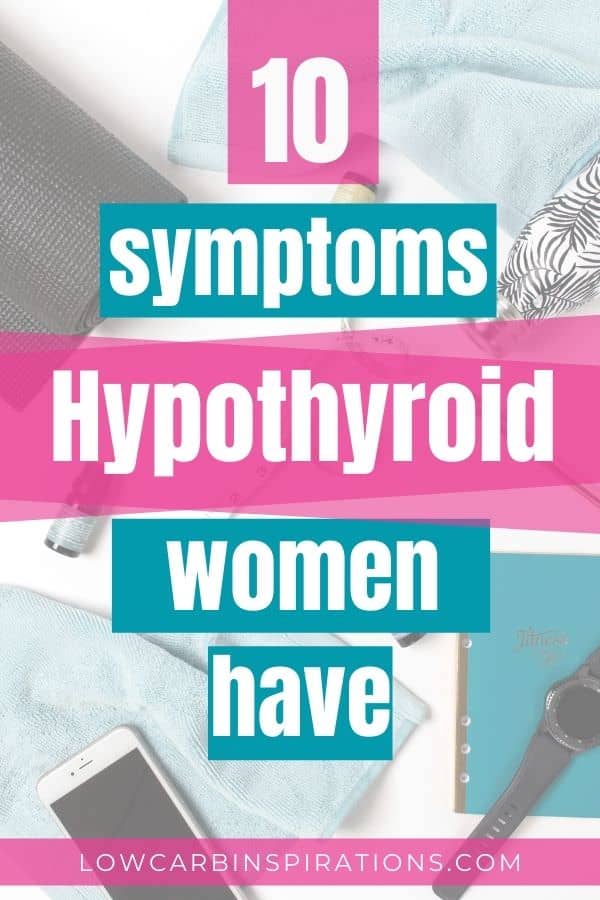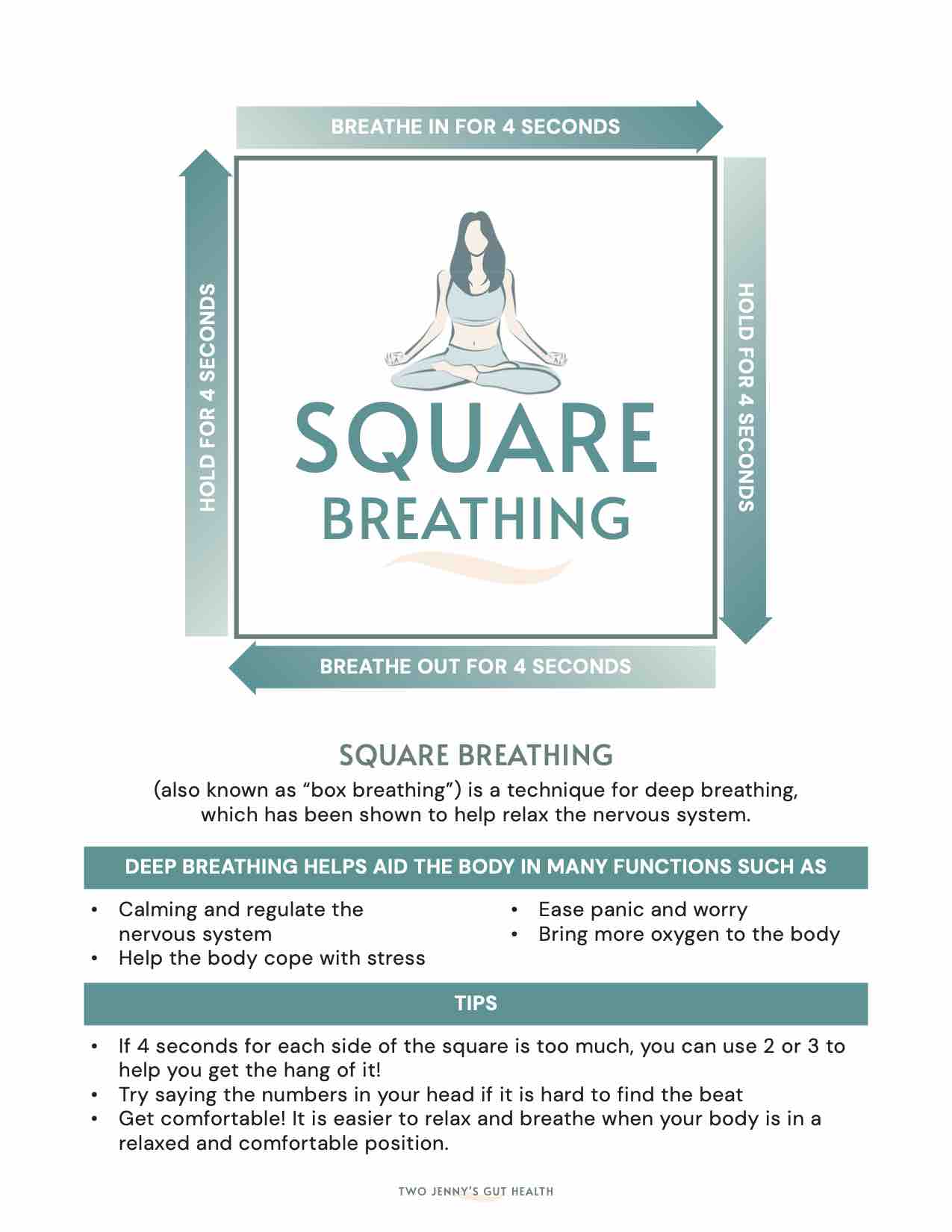Hypothyroidism: Signs and Symptoms
Do you feel like you’re always tired and sluggish? Does your hair seem to be thinning or falling out more than usual? Do you often have difficulty concentrating, remembering things, or staying focused on tasks at work or in school? If so, then it might be time for a blood test. A blood test can determine if you have hypothyroidism!
Hypothyroidism is a condition that affects the thyroid gland. The thyroid gland produces hormones that control how quickly the body uses energy, makes protein and controls how sensitive the body’s tissues are to other hormones.
Are You Suffering from Hypothyroidism?
-Check the neck to see if it is swollen and, or, tender.
-Check your body temperature.
-Out-of-sync menstrual cycles
-Take a blood pressure test to see if it is lower than normal for you (a reading of less than 120/80 mmHg).
If someone in the family has hypothyroidism, or if there’s an autoimmune disorder like Grave’s Disease present that can lead to low thyroid function, then it would be worth getting tested by a doctor as well.
So how do these thyroid tests work?
The first one checks on swollen neck and tenderness which could be caused by inflammation from chronic illness such as Addison’s disease or lupus. As we age our heartbeats slow down naturally so taking your pulse five minutes before waking up is important because this ensures that you’re not experiencing high cortisol levels that could lead to low thyroid function.
Finally, we have the TSH test which is a blood test that checks for antibodies and antigens in your system if there are high levels of these then it’s likely you’re experiencing an autoimmune disorder and should get tested immediately by a doctor.
-Take a blood pressure test to see if it is lower than normal for you (a reading of less than 120/80 mmHg). If someone in the family has hypothyroidism, or if there’s an autoimmune disorder like Grave’s Disease present that can lead to low thyroid function.
Symptoms of hypothyroidism:
-A dry, coarse and thick skin texture. The hair may also be brittle or thinning.
-Trouble concentrating and memory problems.
-Constipation/diarrhea (due to sluggishness)-Constant fatigue and a lack of energy.
-A deep, husky voice or excessive hoarseness (meaning that the person has been talking for an extended period). This can also be accompanied by breathing difficulties like shortness of breath with exertion.
-Increased risk for heart disease because hypothyroidism affects cholesterol levels in the body.
A person with an under active thyroid is not producing enough thyroxine, which has a number of effects on the body.
-Fatigue (no matter how much sleep they get).
-Weight gain, even when trying to lose weight or eating less than normal. This will typically happen in areas where there are no fat cells already present such as arms and legs. It can also lead to increased sensitivity around joints and bones due to low levels of calcium deposits. Weight will fluctuate a lot when it comes with hypothyroidism.
-Insomnia/difficulty falling asleep at night – this usually happens because their bodies aren’t regulating temperature properly with all the extra heat production from having more calories that need metabolizing but don’t really know what to do with.
-Headaches, especially in the morning.
-Dry skin and hair – this is a result of not being able to produce enough oil (sebum) for their body’s natural moisture or due to hormonal changes that occur when medication isn’t properly regulating thyroid production.
-Brain fog
-Low Vitamin D levels
-Low Iron Levels
-Hypoglycemia
-Heart palpitations/irregular heartbeat from having overly sensitive nervous system from low thyroid hormones because they can’t regulate body temperature properly.
-Difficulty maintaining weight due to increased metabolic rate and lower levels of leptin – this is the hormone that signals us when we are full and not hungry. Low levels make it difficult for our brain to register whether or not we need more food than usual.”
-Swelling in your neck, throat, face, fingers (due to a condition called thyromegaly).
-Low energy/lack of stamina
-Anxiety
-Depression: The thyroid gland controls many processes which regulate metabolism, growth/development and other bodily functions like mood swings (depression).
-Overwhelmed or cannot complete normal everyday tasks.
For most women, hypothyroidism causes menstrual irregularity in the form of heavy periods or missed periods altogether (amenorrhea). Hypothyroidism also affects fertility as well.
The severity of symptoms will vary from person to person depending on how well they’re eating, sleep habits, stress levels etc., but it should be something you speak with your doctor about if these issues are happening more frequently than usual.”
If you’re experiencing one or more of the aforementioned symptoms, it might be worth getting a test done to see if your thyroid is at fault. There are a few options for tests that can help determine whether hypothyroidism is present in someone’s system: saliva hormone tests, blood testing and even ultrasound imaging.
The hardest part about this whole journey is finding a doctor or endocrinologist who is willing to look at your blood tests and your symptoms to do additional testing. Most doctors only test TSH and T3 without getting the full panel.
Another frustrating part is making sure you doctor will read your symptoms even though your levels may be considered in the “normal” range even though you still feel horrible.
Additionally, most insurance companies cover these costs as long as there has been an established diagnosis of hypothyroid.
How to Determine if You Have Hypothyroidism by Completing these Tests:
– Saliva Hormone Test – Obtain a sample of your saliva and pop it into a vial that contains an acidic solution. Add this concoction to some test papers, allow them to dry for about five minutes, then hold each one up against another paper with what is considered “normal” levels according to thyroid labs. If yours are lower than normal on any of these tests, it’s time for blood testing or ultrasound imaging!
– Blood Testing – Obtaining full panel thyroid lab work while in a fasted state before 9:30am will demonstrate whether I have hypothyroidism or not.
– Ultrasound Testing – Ultrasound imaging will allow your doctor to observe the size, shape and texture of your thyroid gland.
How long does it take to diagnose hypothyroidism?
The minimum time to diagnosis is generally six months but there are exceptions from people who may have other issues such as autoimmune thyroiditis which will need a doctor’s attention right away if they experience any symptoms within three months after being tested normal on previous occasions.”
Not all tests are created equal.
The TSH test is the most common thyroid panel that you will have done when being tested for hypothyroidism because it’s easy and non-invasive. The issue with this type of testing is that there are so many factors, such as age, pregnancy or disease like Hashimoto’s Thyroditis which can skew results.”
If your doctor prescribes a diagnostic workup to check if hypothyroidism could be causing symptoms in patients who show subtle signs but whose TSH levels fall within the normal range, make sure they do all five tests – thyroxine (T(H) ), Free Thyroxine Index (FTI), and Triiodthyronine (T[H] ).
The 6 most common hypothyroidism blood tests are :
- TSH (Thyroid-Stimulating Hormone)
- Free T3
- Free T4
- Reverse T3
- Thyroglobulin Antibodies
- Thyroid Peroxidase AB
In addition to an accurate measurement of your thyroid hormone levels, you should ask for a full lipid panel test to assess risk factors for heart disease such as cholesterol or triglycerides in your blood.”The best way to diagnose hypothyroidism is with lab testing from five different hormones: thyroxine (T(H)) plus free T(H), triiodothyronine (T[H])
Different hormones affected in hypothyroidism:
TSH, thyroxine (T(H)), Free T(H), triiodothyronine (T[H]), Total Thyroxin. The FTI is not recommended for diagnosis of hypothyroidism as it is highly reliant on age and gender.”
The best way to diagnose hypothyroidism is with lab testing from those different hormones tests.
A Complete list of hormone tests to check are:
Reverse TxRiO+s.r.t., lipid profile and C-reactive protein tests
free thyroxin index, total triiodothyronine ratio and reverse TxRiO+s.r.t.
TSH: “TSH should be less than or equal to 0.04 mIU/L (less than or equal to 40 μU/mL) in a healthy adult population,”thyroxine (T(H)) plus free T(H): the lab range for this test is between 12 – 22 mcg/dL;triiodothyronine ((T[H]) : The laboratory values are typically around 100 ng/dl but can vary widely among individuals.
Free thyroxin index, total triiodothyronine ratio and reverse TxRiO+s.r.t., lipid profile and C-reactive protein tests: labs will typically check for these items as part of a routine thyroid test.”
A better understanding of the Thyroid Hormone Testing:
-TSH: To check your thyroid gland’s function. If you have an underactive thyroid, the TSH will be high because in order for it to work at all, there has to be thyroxine on board.” “If these tests are not done yearly or biennially and if they show a decline over time without other symptoms like weight gain or extreme fatigue then this is a good indicator of hypothyroidism.”
Other things that can cause similar symptoms: chronic stress (causes adrenal dysfunction), vitamin deficiencies including B12 and iron, low blood sugar level”
Free T3 test: “Free T-levels can be tested by blood work and are the best indicator of thyroid function levels. The normal range for a Free T-level is between 90 to 194.”
Thyroglobulin Antibodies test: “Thyroglobulin Antibodies test is performed to detect the presence of thyroid cancer in people with known or suspected autoimmune thyroiditis.”
If you are experiencing symptoms and a free T-level falls below normal, it’s time for an exam with your GP. If that doesn’t resolve things, ask for a referral to see an endocrinologist or even a natural path doctor.
Low Iron levels: People can get low iron from diets high in phytates (grains and beans), mineral deficiencies (copper) or periods of heavy menstruation.
There is no test which measures the level of thyroid hormone directly, but certain lab tests can provide indications about hypothyroidism such as by measuring thyroglobulin antibodies.
Other things that can cause similar symptoms: chronic stress (causes adrenal dysfunction), vitamin deficiencies including B12 and iron, low blood sugar level Free T-levels can be tested by blood.
How it feels when you have hypothyroidism:
You may feel more exhausted than usual without any other explanation why. Your body temperature fluctuates so you might get too hot one minute then cold the next. And if your symptoms sound like this, there’s an even greater chance that these feelings could mean something else is going on.
It’s important to keep your routine checkup with a your physician so they can assess whether or not you have hypothyroidism by examining any changes in your health. The symptoms are usually gradual so it’s important to have an annual physical examination including blood tests for thyroxine levels as well as TSH to rule out diseases like hypothyroidism.
The best thyroid group on the internet is called “Stop The Thyroid Madness” group.
Even though I didn’t find it until just a few years ago, there is so much information available on hypothyroidism. It’s hard to believe that people have been going through this for decades before we knew anything about it. But the best part of all is you can share your story and connect with others struggling with similar symptoms or who are in remission. With these wonderful resources out there, one day soon our society will be even more educated than ever! I hope everyone reading finds them as helpful as I did and please feel free to comment below if you want to talk more about any of these blog posts-or leave feedback in general 🙂



